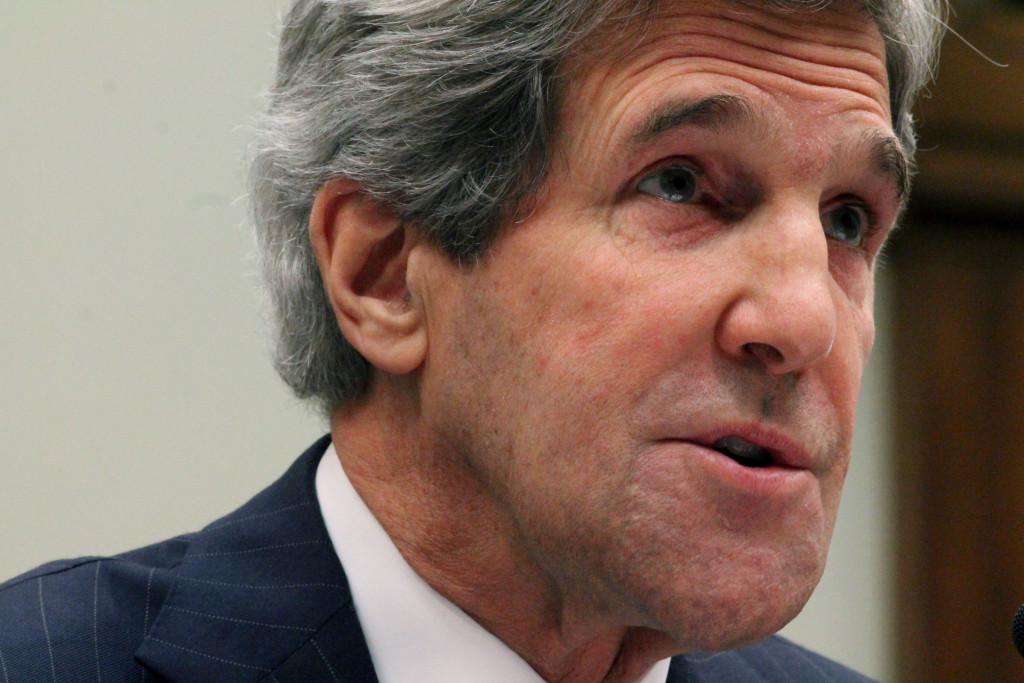
U.S. Secretary of State John Kerry (File Photo by Jennifer-Leigh Oprihory/MEDILL)
WASHINGTON — Secretary of State John Kerry placed the issue of U.S. trade agreements firmly in a national security context Thursday, saying two pending trade deals demonstrate how U.S. economic and national security interests are one and the same.
“In our era, the economic and security realms are absolutely integrated,” he told a room full of analysts and policymakers at an Atlantic Council event, making the case for the Trans-Pacific Partnership and Transatlantic Trade and Investment Partnership, two sweeping trade deals being negotiated by the U.S. Trade Representative.
The Trans-Pacific Partnership would set rules for the U.S. and 11 Asian countries, which notably exclude China, by far the biggest economic force in the region.
“The idea is to put pressure on China and write the rules before they have a chance to write them first,” said Garrett Workman, associate director of global business and economics and Atlantic Council.
But many economists and Washington insiders see the move to couch these economic issues in a national security context as a way to make them more palatable to the mounting domestic forces that oppose them.
“They need to make this a national security argument,” said Dan Ikenson, director of the Herbert A. Stiefel Center for Trade Policy Studies at the Cato Institute, “because the economic argument is falling on deaf ears in the Congress and in the more traditionally resistant arms of the Democratic Party.”
Perhaps the most resistant is organized labor, which has long fought the TPP and similar trade agreements that have come before, such as the North American Free Trade Agreement, which was passed during the Clinton administration to open trade with Mexico and Canada.
“When these kinds of agreements fail to make their case on economic grounds,” said Thea Mei Lee, a deputy chief of staff at the AFL-CIO, the largest federation of unions in the U.S., “the leadership tends to invoke these sorts of amorphous national security issues.”
Labor isn’t the only point of friction for the TPP, which is in its final stages of negotiation internationally but still has to make it through Congress once the trading partners have settled on the terms. The American dairy industry, which is being pressured to accept more dairy imports from abroad, is trying to offset this breach into their market share by exporting their own product to other countries.
“If Canada opens its dairy market to some extent and if the U.S. gets a good package from Japan, then the U.S. could lower its barriers to New Zealand,” said Michael Smart, vice president of Rock Creek Global Advisors, a consulting firm that works on trade.
Negotiators have many such wrinkles to iron out in the coming weeks, and the Obama administration will likely have to account for many more when the TPP comes before Congress, which is likely to happen in September or October.
But some participants foresee a longer timeline for the agreement.
Moderating a panel before Kerry delivered his address, Frederick Kempe, the president and chief executive of the Atlantic Council, set the tone for the discussion by telling an anecdote.
“I asked a someone who worked on NAFTA what it takes to get one of these things done,” he said. “The reply was, ‘You have no idea what you’re getting into.’”






